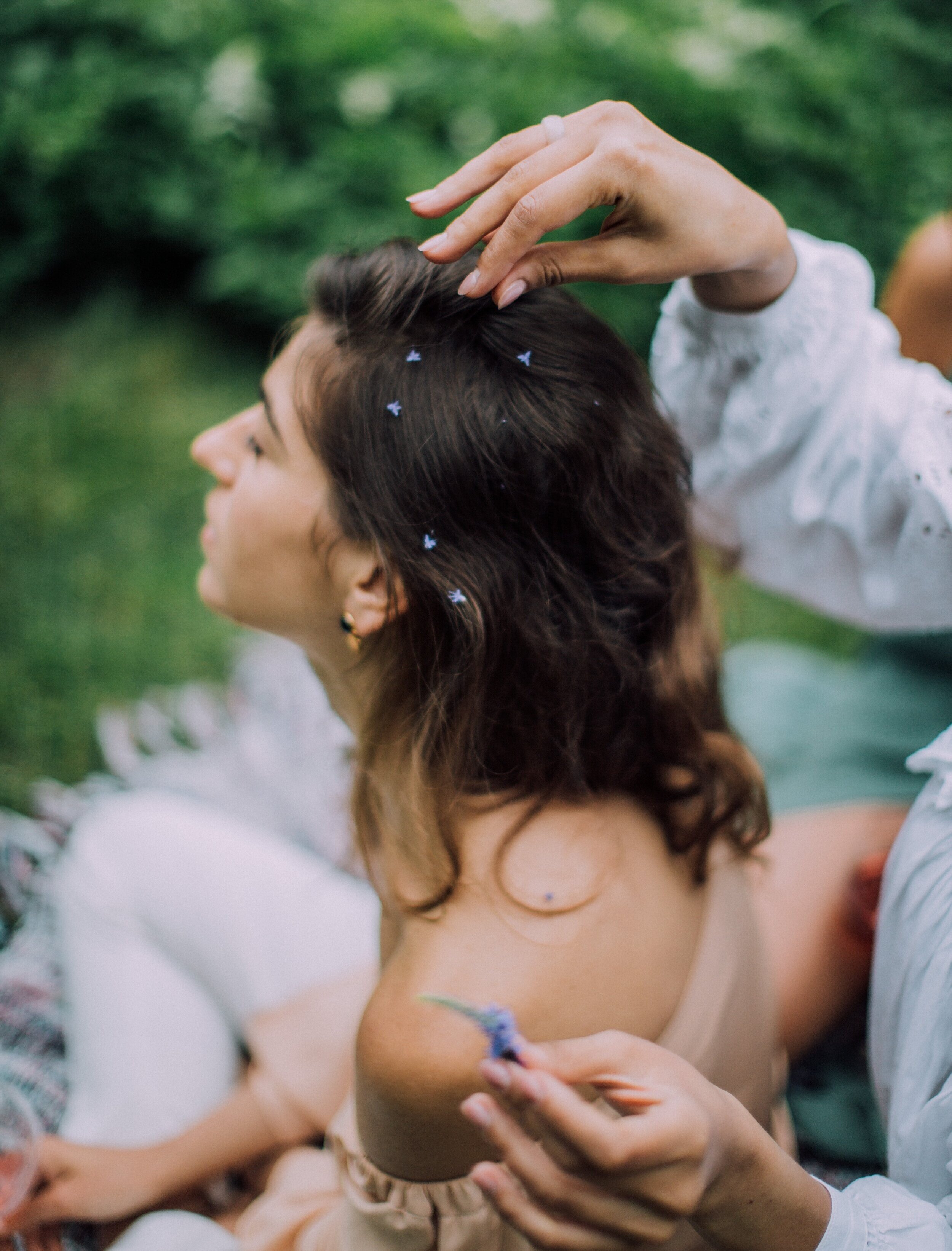Part 1: Words from the Wise - Girls and periods, mothers share their stories
By Freya White
Periods come in all shapes and sizes, they can be physically demanding, emotionally challenging, uncomfortable, and defiant. In this blog I share stories from mothers about both theirs and their daughters’ experience of periods. These experiences suggest that “period shame” is becoming something of the past and that we should instead be celebrating periods as a right-of-passage to womanhood rather than concealing them. I also share their thoughts on body image and self-love in an age of social media pressure.
My mother Trudi celebrated my first period by taking me to get my ears pierced, and so I always perceived it as a positive change and, before it happened, something to look forward to.
In contrast, she didn’t have a celebration of any kind. Her first period was experienced as embarrassing, an uncomfortable burden, and “unnerving”. When I talked to three other mothers about their first period; Helena, Louise, and Jo, they used words like “shameful”, “embarrassing”, “terrifying”, and “something to get on with”. A relatively positive reflection was shared by Louise, as she described feeling “gloriously grown up” when she first started menstruation. She recalled milking this new change to skip swimming lessons and later as a means to be put on the pill for contraception. Despite the benefits, she recalls the “horror and shame of leaking a few drops of blood once while playing at a friend's house.”
In comparison, Jo explained how she felt betrayed by her body when she started her period and that it took a long while to come to terms with the new change. A more neutral stance was shared by Helena who explained how because of her education and later career as a paediatrician, periods were never something she thought about other than in practical terms. Reading their experiences, I was saddened that none of these women had had the opportunity to celebrate their period as a right-of-passage to womanhood like I had.
Periods are an intrinsic part of being female, they lead the way into womanhood. I believe their arrival should be celebrated, but without conversation celebrations are unlikely to occur. With this in mind, I asked the group of mothers whether they had talked to their mothers about periods, about the physical and emotional side. Trudi told me that it was never a topic of conversation, with her only memory being of her mother referring to periods as ‘poorlys’, which only reinforced the negative aspects of them. Helena, Louise, and Jo’s responses told me similar things; conversations were very minimal if at all - “less said the better”, “all very hush-hush”, and “…just expected me to get on with it”. Jo shared a memory of her mother giving her a book about periods, she was so horrified by it all that she shied away from any conversation related to the matter.
However, when I asked the mothers about their experience of when their daughter/s approached their first period, for some it was a different story. Louise told me:
“I was very conscious and determined about having different - and more conversations - with my daughter about this journey.
We started pretty early on, and had access to books like "Mummy Laid an Egg" which we read to both children, which would make them hoot with laughter! So already the secrecy was burst.”
Trudi and Jo told me that they frequently had open conversations (and still do) about this journey with their daughters, talking about both the physical and emotional aspects of menstruation: “so they’ve grown up seeing these as normal things to chat about.” Jo said. Jo went on to share that her daughter was looking forward to starting her period after attending a menarche workshop together (this is a gathering for girls who are at the onset of menstruation where they learn about the physical and emotional aspects of the female cycle). This was lovely to hear.
All the women talked positively about their daughter’s first period, emphasising their confidence and general ease following the change.
Helena shared how her youngest daughter was over 16 when she started her period, but despite the long waiting game she continued to excel in sports, championing in climbing tournaments. Through this time her daughter expressed little worry about her lateness. Helena remembers her daughter embracing her first period positively. Jo told me that both her daughters enjoyed celebrating their first period and continue to see them as something positive for women. From reading these mother’s responses, it seems that the period shame which has been prevalent for many women is becoming something of the past. Perhaps this is due to the increasingly open conversations between mother and daughter and the modelling of personal success. From what they have shared, their daughters (like me) appear to have embarked upon the journey of puberty with more confidence and ease.
Look forward to part #2 ‘Words from the wise’ following next month where I talk about body changes during puberty and body image.
Freya White - Content Writing & Blog
Freya volunteers with Big Sis and hopes to be a small part of a big change. She wants to support and encourage women to love and accept who they are, and everything that comes with being a woman.


